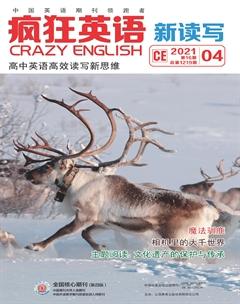博物馆应该归还非法获得的文物吗?
蒋建平

Should museums return antiquities obtained illegally?
難词探意
1. antiquity /ntkwti/ n. 古董;文物
2. property prpti/ n. 财产;财物
3. loan /ln/ n. 借出;贷款
Antiquities are ancient objects and artworks. Many people visit museums to view antiquities. They enjoy seeing these relics of the ancient world as a way of understanding past cultures and sometimes connecting with their own heritage.
Museums get works to show from many different sources. Sometimes they buy them. Other times they receive donations. Today there are strict guidelines forbidding art that has been stolen from other countries. However, antiquities that have been at museums for many years or even centuries may have arrived there by dishonest means. Now, some countries say that museums have a duty to return these antiquities to their original locations.
Should museums return the antiquities? Malcolm Bell says yes. Bell is a professor of art at the University of Virginia. He says, “Many antiquities and works of art have special cultural value for a particular community or nation. When these works are taken from their original cultural setting, they lose their context and the culture loses a part of its history.”
According to Bell, a country?s request for the return of an antiquity usually has a strong legal basis. “It was exported illegally, probably also dug out illegally, and is now stolen property.” He called the return of antiquities “an expression of justice”.
James Cuno says not always. Cuno is the president of the J. Paul Getty Museum, an art museum in Los Angeles. Cuno agrees that museums have a legal duty to return illegally exported antiquities. However, he doesn?t support the return of works which were got legally. “Land held today by a given nation?state in the past likely belonged to a different country...even if one wants to return those stolen works of art, where will one do so? Which among the many countries, cities, and museums that own parts of a work of art should be the home of the returned work?” Cuno believes that museums should collect art from the world?s various cultures. This should be done through buying or long?term loan and working together with museums and nations around the world.
This debate is far from over. As a complex question with no easy answer, the issue requires more study.
1. What can we learn from the first two para?graphs?
A. Museums get antiquities through various means.
B. Antiquities from other countries are more valuable.
C. Antiquities are greatly appreciated by for?eign visitors.
D. Museums around the world have lost ma?ny antiquities.
2. Both Bell and Cuno seem to agree that
.
A. antiquities from other countries may lose their cultural value
B. museums should collect antiquities from different cultures
C. museums should return illegally?owned an?tiquities
D. illegally?owned antiquities should not be shown
3. What is the author?s attitude toward the issue?
A. Positive.
B. Negative.
C. Objective.
D. Uninterested.
Useful expressions
connect with 与……有联系
have a duty to do sth 有义务做某事
a request for sth 请求某事
far from 根本不;远不
中国流失海外的文物有多少
国际博物馆协会称,中国出境文物总量约164万件,分布在47个国家的200余家博物馆中。中国文物学会据此得出另一组数字,认为从中国流出的文物总数达1,000万件,是博物馆藏品的6倍。由于涉及文物定义和信息不易获取等诸多困难,准确统计流失文物的数量其实是一项“不可能完成的任务”。
针对博物馆中一些通过不正当手段得来的文物是否应该归还的问题,出现了不同的声音:一些专家不同意归还,另一些则认為应该归还。

